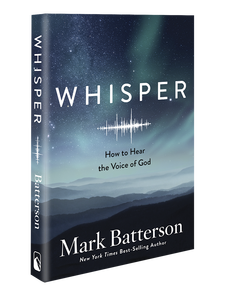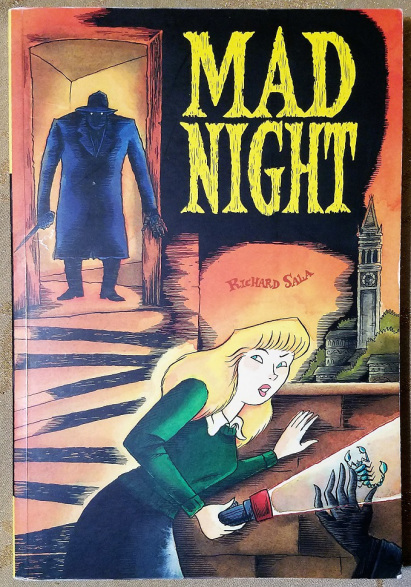Who watches the watchmen?

A publication that shouldn’t.
CJR never had teeth or guts, and comes in with a built-in narrative that journalism is basically a moral profession.
Tell that to people who worked with Stephen Glass, Matt Lauer, Charlie Rose, and all the journalists and editors chronicled in my first book.
CJR’s informational value is next to nothing, explaining why its frequency of publication has whittled down over the years.
And considering the number of scandals and alienation the profession has suffered, a Columbia j-school education is not worthy of the paper the degree is printed on; so their publication has no utility to the profession.
And there is a big problem with that.
The “we are the good guys” narrative means one thing: that no problem in the profession can ever be solved, only temporarily masked with false assurances. There is no justifying allowed of sexual predators in the workplace because they will never see anything wrong with being abusive; hence, their stories will be skewed and biased, always justifying their own predatory ways in every story they do, missing all of the big stories because their filters prohibit it.
If you are a publication looking at the business and ethics of journalism, and you go in with the assumption that the profession is essential good, the kinds of analysis you will se will be of the Mary Sue variety: well yes, there was a breakdown, but only because journalists were working so hard to getting at the truth, that they missed a little detail…but otherwise, everything is wonderful!
No, sometimes you have to say: we have too many narcissists in this profession who use their poorly-paying jobs as chick bait as they sexually harass the unpaid interns and plagiarize press releases and pretend to be gathering facts as they get intoxicated on the premises and think they can deflect attention away from their own dark deeds by hurling mud at people through their stories.
The latter is closer to the truth than the former.
A perfect example of the Mary Sue problem is Don’t blame the election on fake news. Blame it on the media.
It is, in fact, propaganda at its worst. It begins in this way:
Fake news, much of it produced by Russian sources, was amplified on social networks such as Facebook and Twitter, generating millions of views among a segment of the electorate eager to hear stories about Hillary Clinton’s untrustworthiness, unlikeability, and possibly even criminality.
Are we to assume that Clinton was a choir girl? I do have very good long-term memory, and I do recall that until she secured her party’s nomination, it was the mainstream press who had raised countless alarm bells over her for decades. It was not as if she had ever been a media darling before that point.
Or have we already forgotten?
So right away, the article begins with a deceptive narrative: that Clinton was the angelic choice against the demonic Trump, and she lost because of evil whispering campaigns.
In fact, until that point in time, it was Trump who had been a media darling; a reliable rent-a-quote for the press. Clinton was distrusted.
Although Spy magazine roasted Trump and gloriously so, Clinton’s own media blow-ups led to her also getting roasted:

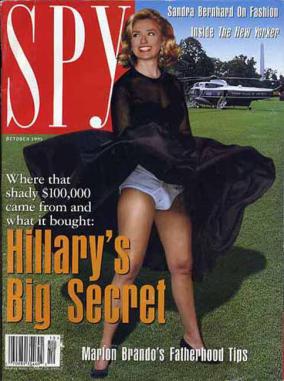
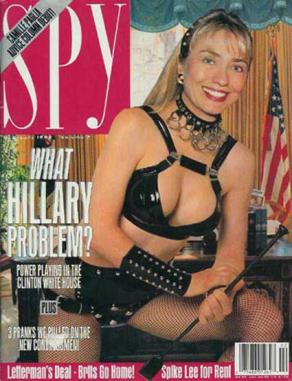
So the subtext of this article is that people who voted wouldn’t have the previous press coverage in the back of their minds?
It was the press that flip-flopped once other media darling Bernie Sanders didn’t get to be on the Democratic ticket.
All of the sudden, the press changes its mind, and everyone is supposed to mindlessly follow their newest decree?
But the first real knee-slapper of sophistry in the CJR piece bumbles in right after:
Alarmed by these threats to their legitimacy, and energized by the election of a president hostile to their very existence, the mainstream media has vigorously shouldered the mantle of truth-tellers. The Washington Post changed its motto to “Democracy Dies in Darkness” one month into the Trump presidency…
Washington Post’s mottos sound like something you’d find on a World War II propaganda poster. The article is already justifying partisan reporting — and rank propaganda even before it starts. The media did not “vigorously shouldered the mantle of truth-tellers”: they wore the mask and got away with it precisely because they had to competition.
Do they call the newspaper to task for having a motto with a sink or swim fallacy?
Nope.
If it is a mea culpa one is expecting, there will be disappointment. The “fault” of the press is, according the article’s authors Duncan J. Watts and David M. Rothschild:
Nonetheless, we believe that the volume of reporting around fake news, and the role of tech companies in disseminating those falsehoods, is both disproportionate to its likely influence in the outcome of the election and diverts attention from the culpability of the mainstream media itself.
In other words, journalists were too involved and diligent, a Mary Sue problem.
So even when the press is to blame, they are not really to blame.
Worse, the methodology of the piece was highly flawed as it made several unfounded assumptions. Sentence counting, for instance, assumes all sentences are created equal and influence equally. Most people merely scan headlines (the reason why the Drudge Report has such dominance: tl;dr, anyone?) — and more importantly, when it comes to social media — DIY propaganda posters that litter Facebook.
And considering the number of news articles that never get a single comment or share, the methodology is mystifying, especially as the New York Times does not have broad appeal, but partisan appeal.
This is shoddy methodology worse than a poorly constructed social psychology experiment. There are no weights, no control group, and no context or proper comparison.
But the biggest flaw of the article — and its entire premise — is that assumes that no one in America would have voted for Donald Trump if they were somehow not brainwashed.
As if voters strictly go by some sort of scandal scale, such as Ma! Ma! Where’s my pa?
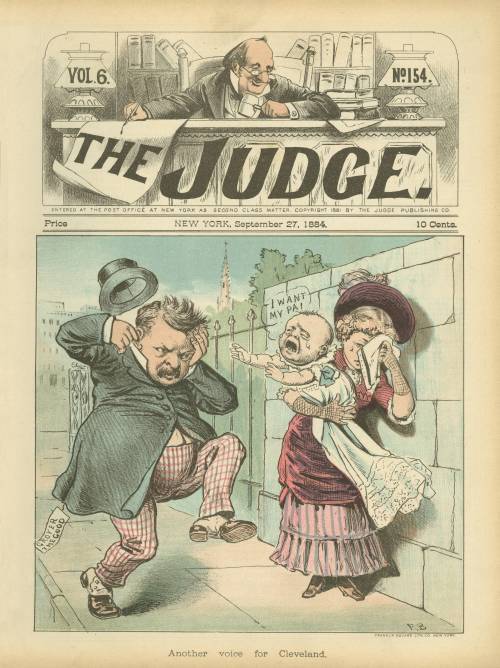
The answer?
In the White House! Ha! Ha! Ha!
Or, maybe something like this:

Sometimes, the grown-ups don’t actually care what is on your Permanent Record.
I do not know how many times Trump voters said that they weren’t enthralled with their pick, but that was the pick who talked about jobs and the economy.
That’s it. It was a single issue that cinched it, and all this unnecessary and flawed research and methodology ignores it. It’s tone deaf.
So, here is the memo for people in the media: people do what they want, regardless of what you tell them to do or to think.
Sometimes, the more you want some people to do A, they do B just to stick it to you, or because A doesn’t work for them, even if it works for you. As an educator, I know this to be true: if I am deemed the authority, then there will be students who will want to defy me just because their personal narrative is that no one will ever confine their options or tell them what to do. They will even take a harder route just so they do not go on someone else’s path.
And that’s their right.
Voters knew who Trump was when they voted for him. They also very well knew who Clinton was when they voted for her.
The voters made up their own minds and voted.
They did not take the media into the voting booth with them.
They did not take the scandals.
They did not take the policies.
They took their instinct as they voted for president, senator, congressman, and governor.
And that is the lesson journalists must come to grips with now.
All the little charts and graphs in the world mean absolutely nothing if you do not understand the basics of human nature.
Journalists and their educators do not comprehend basic reality.
They still live in the movie All of the President’s Men, thinking they are going to tell America about a bad and mean man, and all of the little people will be outraged on cue and demand whatever it is that the journalists decree is appropriate.
But the CJR’s article was absolutely clueless:
To be clear, we do not believe the the Times’s coverage was worse than other mainstream news organizations, so much as it was typical of a broader failure of mainstream journalism to inform audiences of the very real and consequential issues at stake. In retrospect, it seems clear that the press in general made the mistake of assuming a Clinton victory was inevitable, and were setting themselves as credible critics of the next administration.
Again, the assumption that no one would vote for anyone other than Clinton is absurd.
Give the educated a choice on university campuses, for instance, and a hamster or cat can parlay a joke candidacy into actual votes.
Or a fire hydrant.
Because it goes right back to the core of journalism’s ideological rot: that they do not comprehend their jobs because they are too selfish to see they are not puppet masters. They no longer have the goodwill of the people. They no longer have a pulse on the world around them. They no longer have the clout. They no longer hold the strings.
They no longer have the credibility.
The 2016 US Election was also a referendum on journalism itself.
And it lost.
Bad experiments are not going to make that problem go away.
Journalism collapsed, and the rot overtook the profession.
That is the starting point, and CJR will never have the courage or the savvy to come to terms with it because it is the instrument of a faulty education system that failed more than just journalism, but democracy as well.
Share this:- More

